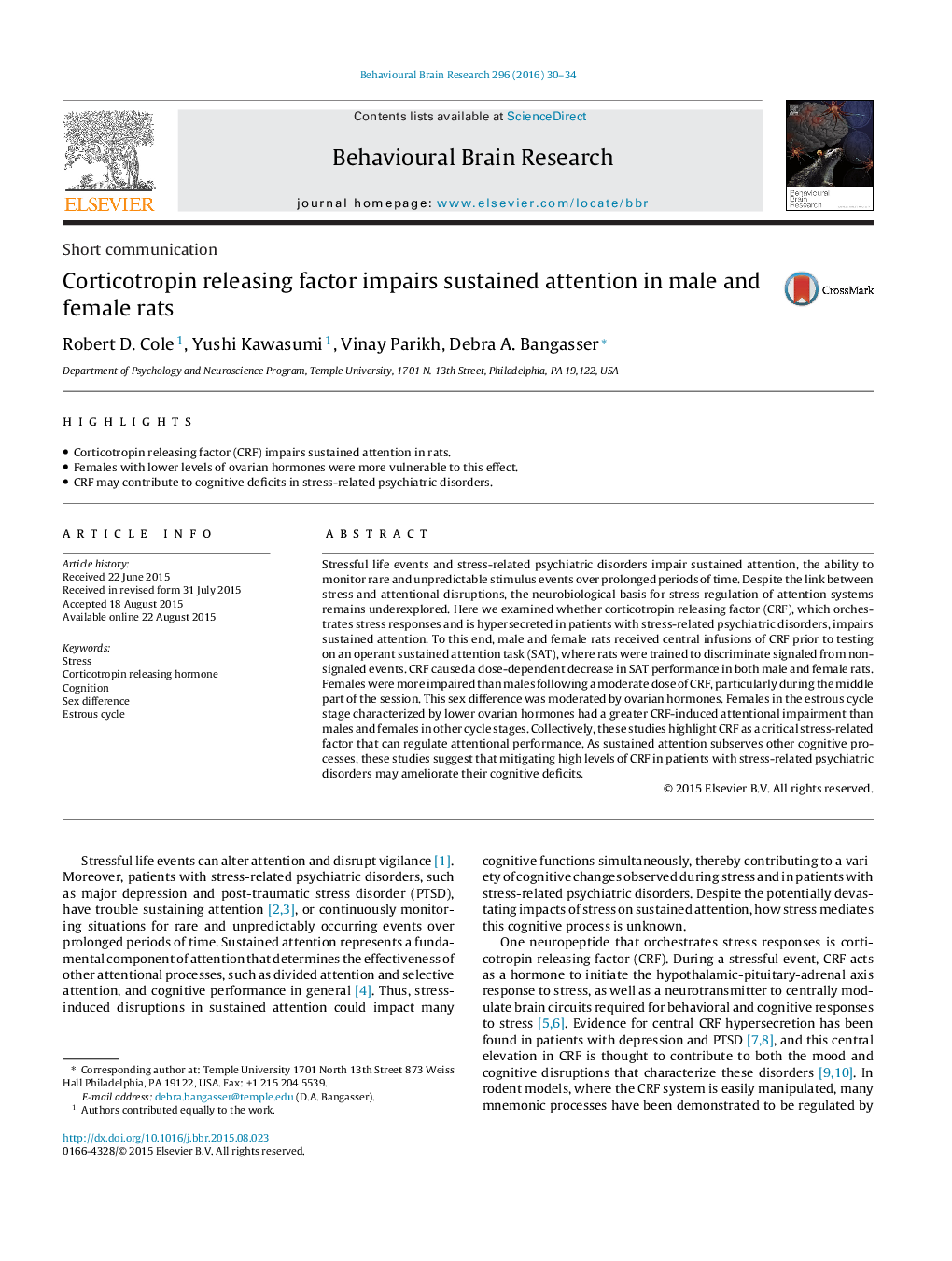| Article ID | Journal | Published Year | Pages | File Type |
|---|---|---|---|---|
| 4312358 | Behavioural Brain Research | 2016 | 5 Pages |
•Corticotropin releasing factor (CRF) impairs sustained attention in rats.•Females with lower levels of ovarian hormones were more vulnerable to this effect.•CRF may contribute to cognitive deficits in stress-related psychiatric disorders.
Stressful life events and stress-related psychiatric disorders impair sustained attention, the ability to monitor rare and unpredictable stimulus events over prolonged periods of time. Despite the link between stress and attentional disruptions, the neurobiological basis for stress regulation of attention systems remains underexplored. Here we examined whether corticotropin releasing factor (CRF), which orchestrates stress responses and is hypersecreted in patients with stress-related psychiatric disorders, impairs sustained attention. To this end, male and female rats received central infusions of CRF prior to testing on an operant sustained attention task (SAT), where rats were trained to discriminate signaled from non-signaled events. CRF caused a dose-dependent decrease in SAT performance in both male and female rats. Females were more impaired than males following a moderate dose of CRF, particularly during the middle part of the session. This sex difference was moderated by ovarian hormones. Females in the estrous cycle stage characterized by lower ovarian hormones had a greater CRF-induced attentional impairment than males and females in other cycle stages. Collectively, these studies highlight CRF as a critical stress-related factor that can regulate attentional performance. As sustained attention subserves other cognitive processes, these studies suggest that mitigating high levels of CRF in patients with stress-related psychiatric disorders may ameliorate their cognitive deficits.
